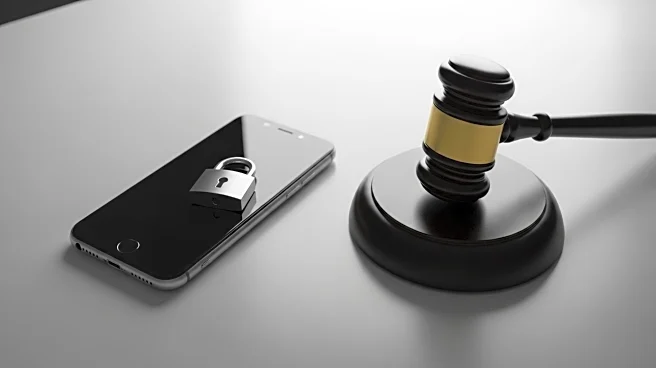What's Happening?
The Israeli High Court of Justice has issued a ruling that prohibits police from searching the contents of personal electronics such as phones, laptops, and tablets without a warrant. This decision was influenced by a petition from the Public Defender’s Office, which argued that such searches contradict existing laws. The ruling applies even if suspects consent to the search, emphasizing the protection of privacy rights. Justice Isaac Amit, recently appointed as president of the Supreme Court, played a role in this decision, which is expected to impact current and future legal proceedings regarding privacy and law enforcement practices.
Why It's Important?
This ruling is significant as it reinforces privacy rights and sets a precedent for how law enforcement agencies handle electronic searches. It highlights the balance between security measures and individual privacy, a topic of global relevance. The decision may influence similar legal debates in other countries, including the United States, where privacy and surveillance are contentious issues. It underscores the importance of judicial oversight in protecting civil liberties against potential overreach by law enforcement agencies.
What's Next?
The ruling may prompt law enforcement agencies to revise their procedures for handling electronic evidence. It could lead to increased scrutiny of police practices and potentially inspire similar legal challenges in other jurisdictions. Stakeholders such as privacy advocates and legal experts may push for further reforms to ensure that privacy rights are upheld in the digital age. Additionally, this decision may influence legislative discussions on privacy and surveillance laws.
Beyond the Headlines
The ruling raises broader questions about the intersection of technology and privacy. As digital devices become integral to daily life, the protection of personal data becomes increasingly crucial. This decision may encourage a reevaluation of privacy laws to address the challenges posed by technological advancements. It also highlights the role of the judiciary in safeguarding individual rights in the face of evolving security measures.










